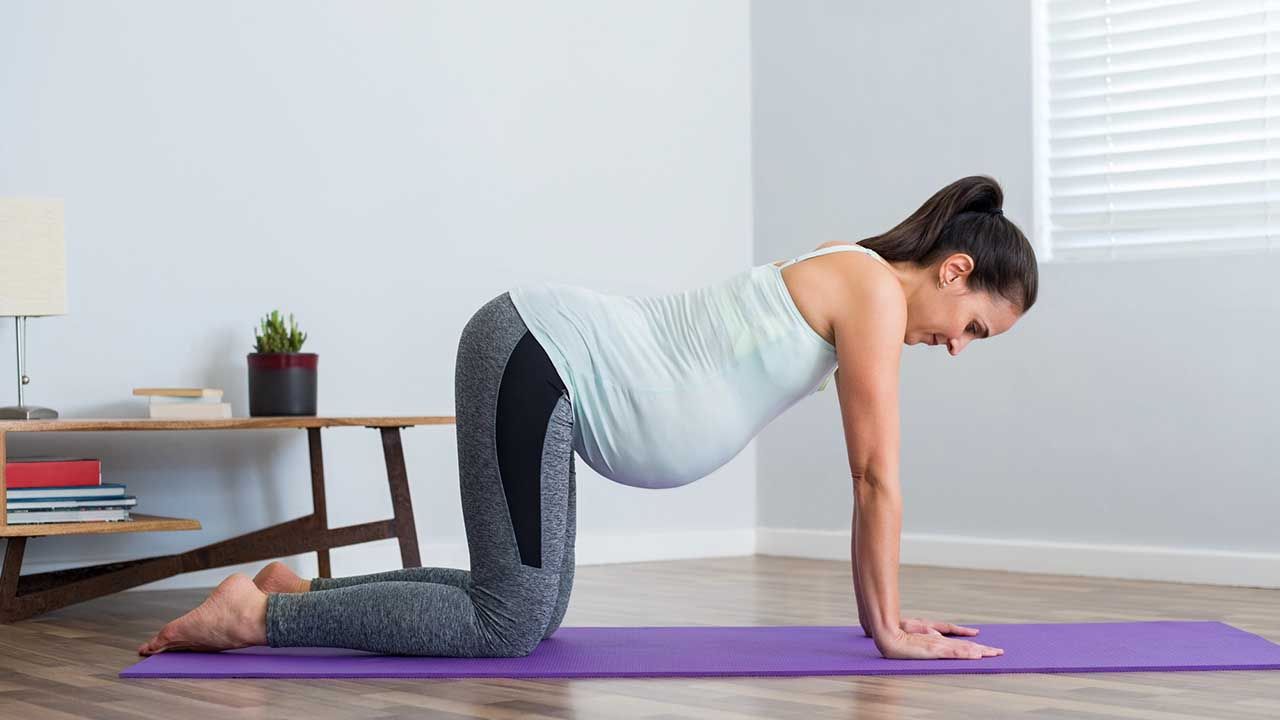Tips To Improve Your Balance

Do you struggle with balance? You're not alone! Balance - especially the kind involved in fitness and yoga - can be really challenging if it's not something you're practicing on a daily basis. The flipside of this is that you'll likely notice improvement really quickly if you make a point to include balancing into your routine regularly.
Balancing doesn't just make for more difficult fitness workouts and impressive looking yoga poses, having good balance is said to be linked to mental cognition and brain health.
If that isn't enough reason to practice balancing, ACC statistics from 2018 show that falling over is one of the most common ways to injure yourself in New Zealand with more than 785,000 fall-related claims being made that year. Working on your balance will help reduce your risk of falls as it improves your stability and strengthens the smaller muscles required to help you maintain your balance in a range of different situations.
Fix your eye gaze
Find a spot about half a metre to a metre in front of you and focus on it. If you're standing, you could fix your gaze on a spot on a wall that's level with you.
The key here is to not look around, as your balance tends to sway whichever way you look, and to pick a spot that doesn't move (because keeping your eyes on a person or moving object in front of you will make balancing more difficult!).
Do you struggle with balance? You're not alone! Balance - especially the kind involved in fitness and yoga - can be really challenging if it's not something you're practicing on a daily basis. The flipside of this is that you'll likely notice improvement really quickly if you make a point to include balancing into your routine regularly.
Balancing doesn't just make for more difficult fitness workouts and impressive looking yoga poses, having good balance is said to be linked to mental cognition and brain health.
If that isn't enough reason to practice balancing, ACC statistics from 2018 show that falling over is one of the most common ways to injure yourself in New Zealand with more than 785,000 fall-related claims being made that year. Working on your balance will help reduce your risk of falls as it improves your stability and strengthens the smaller muscles required to help you maintain your balance in a range of different situations.
Fix your eye gaze
Find a spot about half a metre to a metre in front of you and focus on it. If you're standing, you could fix your gaze on a spot on a wall that's level with you.
The key here is to not look around, as your balance tends to sway whichever way you look, and to pick a spot that doesn't move (because keeping your eyes on a person or moving object in front of you will make balancing more difficult!).
Steady your breathing
If your breathing is fast or erratic, you may find it difficult to become steady when you're trying to balance. Try to slow down your breathing by making your inhales and exhales even. This can help centre you, and act as an anchor to help prevent your mind and eyegaze from wandering.
Be strong in your foundations
Whether you're standing on two feet, one foot, your hands, forearms or some other body part, to make your balanced position as stable as possible you need to work your way from the ground up.
Make sure you've got good alignment and steadiness in whatever is your foundation at the base and have some softness to the rest of your body so that it will have the flexibility to move with any small adjustments.
Use support
Practicing a fixed pose or specific position? Using support such as a wall, chair or yoga blocks can help until you have the ability to do it free-standing.
Just make sure that you don't rely too much on your props - there can be a tendency to pour our weight into them too much which can defeat the purpose. Focus on technique of the position you're trying to achieve, good alignment and a solid foundation so that you will get stronger and eventually be able to go without props.
Steady your breathing
If your breathing is fast or erratic, you may find it difficult to become steady when you're trying to balance. Try to slow down your breathing by making your inhales and exhales even. This can help centre you, and act as an anchor to help prevent your mind and eyegaze from wandering.
Be strong in your foundations
Whether you're standing on two feet, one foot, your hands, forearms or some other body part, to make your balanced position as stable as possible you need to work your way from the ground up. Make sure you've got good alignment and steadiness in whatever is your foundation at the base and have some softness to the rest of your body so that it will have the flexibility to move with any small adjustments.
Practice, practice, practice
The ability to balance tends to improve the more you practice (think of all those smaller muscles you're challenging - they need to get stronger and this takes repetition and patience), so give it a go whenever you get the chance.
Image / DepositPhotos









